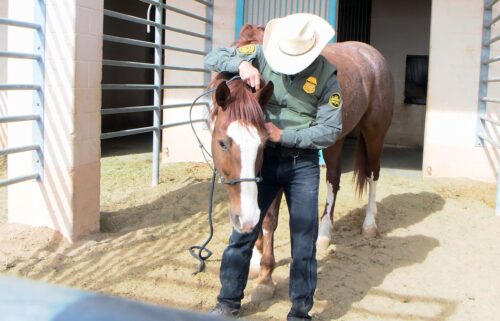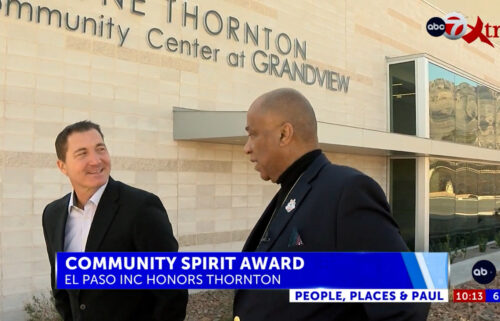3-2 ruling upholds decision to keep Michael Bever in prison for life despite jury’s push for parole
Click here for updates on this story
Tulsa, OK (Tulsa World) — A sharply divided appellate court has upheld a Tulsa judge’s decision to disregard jury recommendations in the sentencing of Michael Bever for the fatal 2015 attack on his family members with his older brother.
A 3-2 ruling Thursday ensures his convictions and life sentences will stand, though two appellate court judges noted Bever’s term of incarceration “is in contrary to the jury’s wishes” and appears to violate the spirit of the U.S. Supreme Court’s guidance on punishment for minors convicted of violent crimes.
While agreeing Bever’s convictions were appropriate, Vice Presiding Judge Dana Kuehn said: “Imposing five consecutive sentences on a homicide offender without the requisite finding required to sentence a juvenile to life without parole is error.”
Bever was 16 when he and his brother were arrested by Broken Arrow police in the stabbing deaths of their parents and three younger siblings. A then-2-year-old sibling was not physically harmed in the July 2015 attack.
In addition to the murder convictions, Bever also received a 28-year term for felony assault and battery against a sister who survived. However, the jury did not find he was “irreparably corrupt and permanently incorrigible,” a legal threshold required for jurors to consider a recommendation of life without parole for someone his age.
Justice Robert Hudson said state law indicates courts are not expressly required to eventually guarantee freedom to such a person, saying Bever subjected himself to a harsh penalty due to the volume of crimes for which he was convicted.
Half of the 12 jurors had signed a letter to District Judge Sharon Holmes asking her to give Bever the eventual chance for release on parole after at least 38 years in custody, or when he is in his mid-50s.
Holmes instead ordered Bever should serve all six sentences consecutively and did not offer any explanation.
Hudson indicated a belief that concurrent sentencing would have yielded “the ridiculous consequence of enabling a juvenile offender to, in essence, circumvent punishment for a crime by committing multiple crimes.”
Kuehn pointed out that, though the jury found Bever did not meet legal criteria for consideration for that sentence, Holmes handed down a de facto term of life without parole.
“Considering a 215-year sentence as not equating to life without parole while ignoring the jury’s collective decision and juror affidavits for concurrent sentences during sentencing is … the only ‘ridiculous’ result here,” Kuehn wrote.
The Supreme Court has barred the use of mandatory life without parole sentences for those convicted of crimes committed while under age 18 on grounds it violates the Eighth Amendment’s prohibition on cruel and unusual punishment.
The majority opinion by Judge Gary Lumpkin contends children accused of multiple violent crimes should not get a “volume discount” on the sentence imposed, writing that the decision on consecutive or concurrent sentencing is within the discretion granted to trial courts.
“A defendant, even a juvenile, who murders five people (and who plans to murder many more) is simply and fundamentally different than a defendant who murders one person,” the majority opinion states, referencing testimony from Bever’s older brother about plans for further homicides.
Presiding Judge David Lewis wrote in his own partial dissent, which Kuehn joined, that the court’s decision in Bever’s case leaves outstanding “constitutional tension.”
Chief Public Defender Corbin Brewster told the Tulsa World on Thursday morning he is considering presenting the case to a federal court.
“Courts across the country are grappling with this issue on juveniles and life without parole sentencing,” he said. “There’s a split among jurisdictions on how to handle that, and Oklahoma, I believe, is in the minority position. It’s basically a position that says U.S. Supreme Court precedent can be ignored and we can engineer results that are justified by the ends that we want to have happen.”
He pointed out the jury heard five weeks of evidence before recommending Bever be allowed parole, and the appellate court ruling “washes down the fundamental importance of juries in decision-making in Oklahoma.”
Kuehn also noted that jurors did not desire consecutive sentencing.
“But since the jury’s legal findings and sentiments go against the result the Majority wants to reach, it simply ignores them,” she wrote. “I dissent because the result today is contrary to the jury’s wishes.”
District Attorney Steve Kunzweiler said he was grateful the appellate court agreed to keep Holmes’ decision intact.
“As I have said many times in the past, this case isn’t as much about Michael Bever or his brother,” Kunzweiler said Thursday. Robert Bever, now 23, is serving multiple life-without-parole terms. “It’s really about the heroism of a 15-year-old girl who found a way to survive and protect her baby sister. That’s where my thoughts lie today.”
Please note: This content carries a strict local market embargo. If you share the same market as the contributor of this article, you may not use it on any platform.




